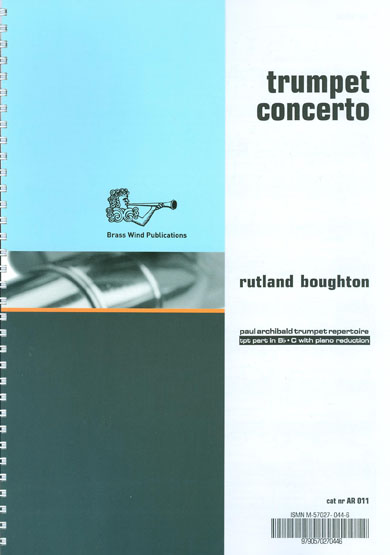Instrument: solo part with piano reduction
Grade: difficult
Catalogue No: AR011
ISMN No: 9790570270446
This piece, although 50 years old, is being published fore the first time and is a wonderful 'find' for the trumpet repertoire. A superb work written in a very 'English' style.
The Concerto for Trumpet and Orchestra was composed in the August and September of 1943. Boughton dedicated it to his youngest son, Brian, who was then studying trumpet at the Royal College of Music under Ernest Hall. Apart from his delight in writing pieces to encourage the musically-gifted members of his family (the splendid oboe concerto he wrote in 1937 for his daughter Joy - one of this country’s leading soloists - is a case in point), Boughton seems to have had no particular player or occasion in mind when he planned the Trumpet Concerto and was probably greatly disheartened when both Ernest Hall and George Eskdale (principal trumpet of the L.S.O.) declared it too difficult for performance. Boughton appears to have played it through at the piano with the young William Overton, and then laid it on one side. Thus, after a delay of nearly fifty years,
John Wallace’s performances with the Fife Sinfonia were the first!
As Boughton was a composer who was able to express his very considerable imagination entirely by means of traditional forms and an orthodox musical vocabulary, his work poses few problems to the attentive listener. The two movements of the Trumpet Concerto move effortlessly through a series of contrasted sections and moods, each marked by a definite change of speed.




